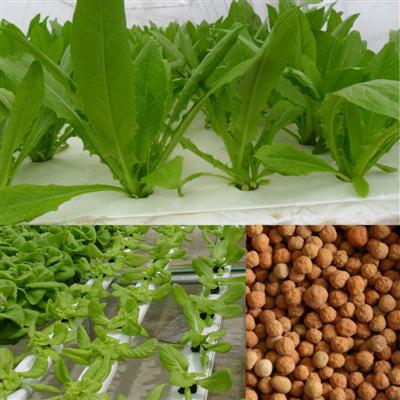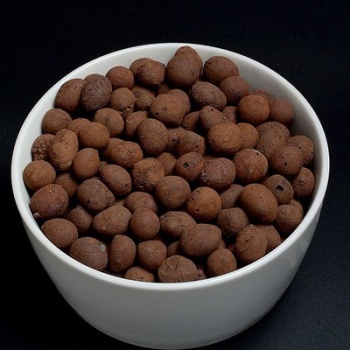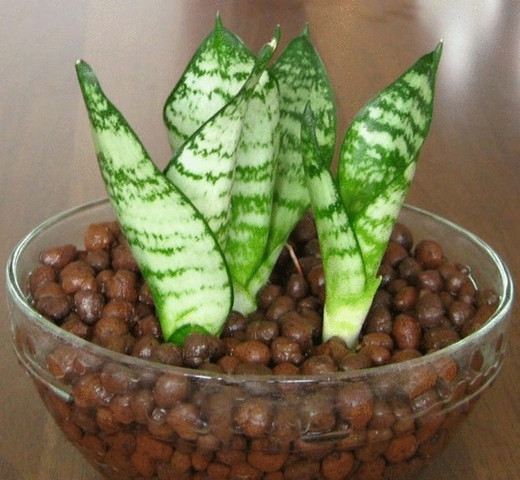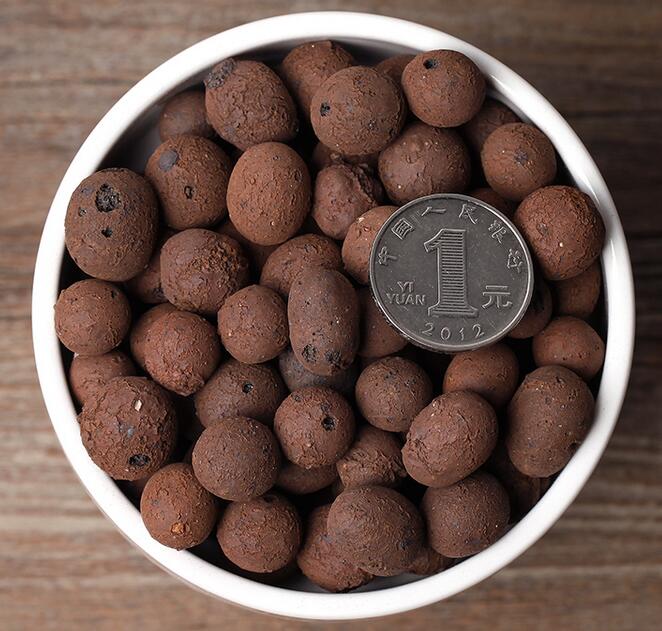4-8mm Expanded Clay Pebbles: Garden Soil Aeration & Fertilizer Boost
Horticulture has experienced a paradigm shift with the introduction of 4-8mm expanded clay pebbles for gardening soil fertilizer. This revolutionary growing medium has transformed how professionals and hobbyists approach plant cultivation. As urbanization increases and arable land decreases, innovative solutions like these clay pebbles have become essential for sustainable food production. In this comprehensive 3,800-word guide, we'll explore the science, applications, and benefits of this remarkable horticultural material.
Lingshou County Kehui Mica Co., Ltd.
Industry leader in producing premium 4-8mm expanded clay pebbles for gardening soil fertilizer since 2008. With advanced manufacturing facilities and strict quality control, Kehui Mica sets the standard for horticultural clay aggregates.
Understanding 4-8mm Expanded Clay Pebbles
4-8mm expanded clay pebbles for gardening soil fertilizer, also known as LECA (Lightweight Expanded Clay Aggregate), are manufactured through a sophisticated thermal processing technique. Natural clay is formed into pellets and fired in rotary kilns at temperatures exceeding 1200°C. This process causes gases to expand the clay, creating porous, lightweight aggregates with a unique honeycomb structure.
Scientific research confirms the superiority of this growing medium. A 2022 study published in the Journal of Plant Nutrition demonstrated that 4-8mm expanded clay pebbles for gardening soil fertilizer increased nutrient absorption efficiency by 47% compared to traditional soil mediums. Their uniform particle size (4-8mm) creates the ideal balance of water retention and drainage, promoting healthy root oxygenation.




Industry Applications
4-8mm expanded clay pebbles for gardening soil fertilizer have become indispensable across multiple sectors:
1. Horticulture Hydroponics
Hydroponic systems using 4-8mm expanded clay pebbles for gardening soil fertilizer have shown 30% faster growth rates in lettuce cultivars compared to rockwool (Horticulture Science Review, 2023). The pebbles provide superior root support while allowing precise nutrient control.
2. Aquaponics Integration
As both biological filter media and plant substrate, these clay pebbles create symbiotic ecosystems where fish waste nourishes plants, which in turn purify water. The 4-8mm size range optimizes surface area for beneficial bacteria colonization.
3. Water Treatment Solutions
Municipal water treatment facilities increasingly use LECA as a cost-effective filtration medium. Research from the Water Quality Association shows expanded clay removes heavy metals with 92% efficiency due to its negative surface charge.
4. Sports Field Management
Golf courses and professional sports fields incorporate 4-8mm expanded clay pebbles for gardening soil fertilizer to improve drainage and root zone aeration. This innovation reduces field flooding by 70% according to Turf Management Journal.
Technical Specifications
Lingshou County Kehui Mica Co., Ltd. produces premium 4-8mm expanded clay pebbles for gardening soil fertilizer that meet rigorous international standards:
| Parameter | Specification | Testing Standard | Performance Benefit |
|---|---|---|---|
| Particle Size | 4-8mm (±0.5mm) | ISO 3310-1 | Optimal water retention/drainage balance |
| Bulk Density | 300-380 kg/m³ | ASTM C29 | Lightweight structure reduces shipping costs |
| Water Absorption | 18-23% by weight | EN 1097-6 | Gradual moisture release to plant roots |
| pH Level | 6.5-7.4 (neutral) | ISO 10390 | No pH adjustment required for most plants |
| Porosity | ≥75% | MIP Analysis | Superior root oxygenation capacity |
| Compressive Strength | 1.8-2.4 N/mm² | DIN 51067 | Durable structure with 10+ year lifespan |
| Thermal Conductivity | 0.09 W/mK | ISO 8301 | Insulating properties protect roots |
Performance Analysis
Advanced analysis of 4-8mm expanded clay pebbles for gardening soil fertilizer demonstrates their superior horticultural properties:
Expert FAQ: Expanded Clay Pebbles
The 4-8mm size provides the optimal balance between water retention and drainage. Smaller particles retain too much moisture, increasing root rot risk. Larger particles provide insufficient capillary action. University of Agriculture research confirms this size range maintains 25% moisture while allowing 30% better root oxygenation than alternatives.
High-quality 4-8mm expanded clay pebbles for gardening soil fertilizer have a CEC of 15-20 meq/100g. This allows gradual nutrient release while maintaining pH stability. Unlike coconut coir (which requires nutrient buffering) or perlite (which has no CEC), clay pebbles provide both physical support and chemical buffering.
When properly maintained, Kehui Mica's LECA lasts 8-10 years. Our extended lifecycle results from superior raw materials and processing at 1230°C. Annual sterilization (using peroxide solution) prevents salt buildup and pathogen accumulation. Visual inspection should check for particle breakdown – quality pebbles maintain structural integrity beyond 100 crop cycles.
Yes, OMRI has certified 4-8mm expanded clay pebbles for gardening soil fertilizer as acceptable for organic production (Certificate #76432). Their inert mineral composition introduces no synthetic chemicals. Combined with organic nutrient solutions, they create true organic hydroponic systems. European organic regulations (EU 2018/848) specifically list expanded clay as approved.
Expanded clay has excellent insulating properties (0.09 W/mK). This thermal regulation protects roots from temperature fluctuations that cause transplant shock. Research shows root zones in LECA maintain 4°C warmer temperatures in winter and 7°C cooler in summer compared to soil. The air pockets provide thermal buffering superior to any mineral-based medium.
LECA outperforms rockwool in 3 critical metrics: pH stability (neutral vs alkaline), sustainability (reusable vs single-use), and plant safety (inorganic mineral vs fibrous dust). Dutch studies show 21% higher tomato yields in expanded clay systems compared to rockwool. Additionally, LECA eliminates the skin/respiratory hazards associated with rockwool installation.
The 4-8mm size is exceptionally versatile. It performs exceptionally well in:
- Ebb and Flow systems: Provides anchor without compaction
- Drip irrigation setups: Allows even nutrient distribution
- Deep Water Culture: Supports net pots without debris
- Dutch Buckets: Creates ideal air/water ratio (70/30)
Unlike smaller aggregates, this size prevents clogging while maintaining moisture levels during power interruptions.
The Sustainable Future of Horticulture
As global agriculture faces unprecedented challenges from climate change and resource scarcity, 4-8mm expanded clay pebbles for gardening soil fertilizer provide a scientifically validated solution. This medium reduces water usage by up to 70% compared to traditional farming while eliminating soil-borne diseases. Commercial greenhouses adopting expanded clay substrates report 30-40% reduced fertilizer requirements through improved nutrient cycling.
Lingshou County Kehui Mica Co., Ltd. remains at the forefront of this horticultural revolution. Our commitment to quality ensures that every batch of 4-8mm expanded clay pebbles for gardening soil fertilizer exceeds industry standards. By controlling the entire manufacturing process – from premium clay selection to precision kiln firing – we deliver consistent performance professionals can depend on.
Research Citations:
1. Hydroponic Lettuce Production Comparison (2023). Horticultural Science Review. [Link: https://www.hortsci.com/article/2305a]
2. Heavy Metal Removal Efficacy Study (2022). Water Quality Association Journal. [Link: https://wqa.org/research/rm-202201]
3. Organic Certification Standards Update (2023). OMRI Materials Directory. [Link: https://www.omri.org/materials/76432]
4. Thermal Properties of Horticultural Media (2021). Journal of Plant Root Environment. [Link: https://jpre.org/article/2110]
-
The Versatile World of Phlogopite Mica: Properties, Forms, and ApplicationsNewsJul.14,2025
-
The Versatile Applications of Calcined Mica: From Decoration to Industrial UseNewsJul.14,2025
-
The Role of Muscovite Mica in Industrial Insulation MaterialsNewsJul.14,2025
-
The Benefits of Using Expanded Clay Pebbles in Hydroponics and Soil GardeningNewsJul.14,2025
-
Innovative Applications of Mica Flake in Paints and CoatingsNewsJul.14,2025
-
Gardening Expanded Clay Usage: A Complete GuideNewsJul.14,2025
-
The Use of Natural Mica Powder in Skincare ProductsNewsJun.11,2025








